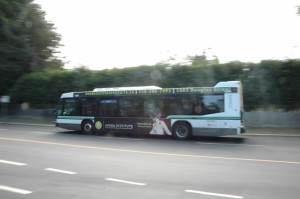On Tuesday, February 23, the Victoria Regional Transit Commission (VRTC) voted 5-3 against giving students a voting seat on the commission. The Camosun College Student Society (CCSS) currently shares a non-voting seat on the VRTC with the University of Victoria Students’ Society.
CCSS external executive Quinn Cunningham calls the decision disappointing and says it’s really important that students have a voting seat because students provide “a serious amount of money” toward funding transit systems.

According to BC Transit, for the 2019-20 fiscal year, total U-Pass revenue from Royal Roads, Camosun College, and UVic was approximately $5.9 million and accounted for 14 percent of total passenger revenue for the VRTC. Of the $5.9 million, VRTC revenue from Camosun College students for 2019-20 was approximately $1.9 million.
“Having a say in what benefits our ridership, especially when our ridership is the largest stakeholder that uses transit, it would only make sense for students to have that sort of representation,” says Cunningham,
VRTC chair Susan Brice says the commission members “understand, respect, and really rely on student input,” but the decision to not give students a voting seat came down to the fact that the public can’t vote students on or off the board.
“Decisions that we make at that commission, in terms of dollars, go straight to the tax bill that the public gets; we’re not an advisory committee that adjudicates and then recommends,” she says. “We make the decision about taxation.”
That decision, says Brice, is vested in the public voting someone into office that they can then vote out if they don’t agree with, she says.
“It wasn’t because of any lack of ability for the students to contribute wholesomely to the discussions around the table,” says Brice.
Cunningham says that he felt that the general sentiment at the February 23 meeting was that students were not “in the same level” as a municipal representative, and that in politics in general, students are sometimes “spoken to as if we’re not equal.”
“If you’re increasing property taxes,” says Cunningham, as an example, “there’s a higher probability of them not being elected if their constituency’s upset with that choice, and that’s the kind of accountability mechanism there is, whereas, I guess they felt that students don’t have that same accountability.”
Brice says that Cunningham’s opinion of students not being held equal at the meeting is “not one that I would agree to” and says that she feels the commission has given input from student representatives equal weight.
“People feel how they feel,” says Brice. “You can’t account for that. I can tell you that he is a thoughtful and contributing member around that commission table.”
Brice says all of the members on the committee value and rely on student input.
“We have always had… lots of good ideas from students, but this one issue—wanting a vote—unfortunately, was something that we just didn’t feel we could recommend to the province,” she says.
If it had been recommended to the province, that would mean a letter would have been sent to the Ministry of Transportation and Infrastructure, and minister of transportation and infrastructure Rob Fleming would then decide if the province should approve the voting seat. If that happened, changes to the BC Transit Act would have been required.
“It’s a pretty significant piece of governance that we just didn’t feel was one that would be appropriate to divest ourselves of that full responsibly as elected people,” says Brice.
Cunningham says that there was talk after the motion didn’t pass of creating a student advisory committee for the VRTC. He is waiting to hear back on further details on that (Brice confirms that a motion was passed directing staff to bring options around what that committee might look like to the next meeting).
“I’m yet to decide how I feel on that,” says Cunningham. “It was more of… them asking staff to look into it, and kind of explore options. I think the commission heard me out and felt that that would be a way to maybe appease the desire for student representation.”
